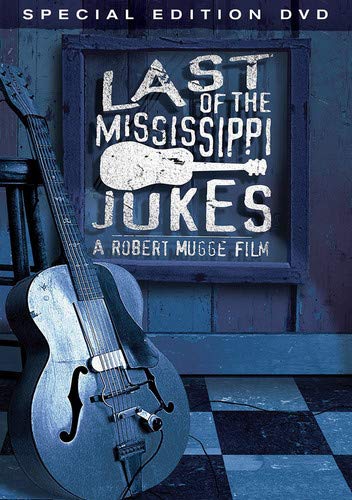
Actor Morgan Freeman, who co-owns Mississippi juke joint Ground Zero, describes Delta Blues as “American classical music.” The documentary Last of the Mississippi Jukes—originally released in 2003 and now available on DVD—chronicles one state’s fight to preserve not only Delta Blues but the juke joints that introduced the blues. This loving tribute spotlights two venues, one older and the other a recreation of traditional juke joints. While the fate of these two places diverge, they share one common interest: fostering local talent and maintaining the tight community that the blues formed.
Juke joints first appeared on southern plantations after the Emancipation Proclamation, providing a place for African-American workers to socialize and listen to local blues musicians. In the Mississippi Delta, these early venues featured such future legends as Muddy Waters, Howlin’ Wolf, Charley Patton, and Son House. People would flock to these establishments to drink, dance, and enjoy great music at a time when African-Americans were barred from many restaurants and clubs. Today, music historians frequent credit juke joints as introducing and furthering Delta Blues; later, many of these early musicians migrated to Chicago and continued refining the blues genre.
Music documentary director Robert Mugge has trained his lens on various genres such as reggae, soul, Hawaiian, and Zydeco. In Last of the Mississippi Jukes, Mugge aims to capture the spirit of juke joints and highlight Delta Blues. He interviews actor Morgan Freeman, who owns juke joint recreation Ground Zero Blues Club in Clarksdale. While Freeman and business partner Bill Luckett discuss how they lovingly replicated traditional blues clubs, they also charmingly summarize juke joint characteristics: Christmas lights festooning the walls, mismatched furniture, beer signs, and a pool table. While their tale of opening the club may be of general interest, the documentary really takes shape when it profiles the Subway Lounge in Jackson, Mississippi. The story of owner Jimmy King’s struggle to keep the club open, along with the building’s fascinating history, proves the most compelling aspect of the film.
Various local musicians discuss their deep love of juke joints, proving that artists and patrons view the clubs as a community. The small spaces allow fans to stand right beside the stage, encouraging a constant give-and-take between bands and audiences. The Subway Lounge perfectly exemplified this format, and held an important place in local history: it was part of the Summers Hotel, one of two establishments open to African-Americans. Legendary bluesman Bobby Rush recalls this fact, stating that such venues need to be preserved. In addition, many fans and musicians express that juke joints are more than fun— they are places where race and class distinctions blur, and love of the blues unites everyone.
Last of the Mississippi Jukes also examines one reason many venues have closed: the advent of casinos. While local musicians appreciate the history and uniqueness of juke joints, casinos often pay better. How has this helped and hurt the local economy? Mugge explores this question in an interesting detour from the main story.
Mugge could have included more juke joints, specifically Po’ Monkey’s in Merigold, Mississippi. A more thorough overview of the history of the venues would have provided a clearer picture of their importance to blues music. Still, Last of the Mississippi Juke Joints offers an introduction to a part of music history, and may inspire viewers to embark on the famed Mississippi Blues Trail.
DVD extras include a 2005 update on the Subway Lounge’s fate, and full performances from various blues musicians featured in the documentary.